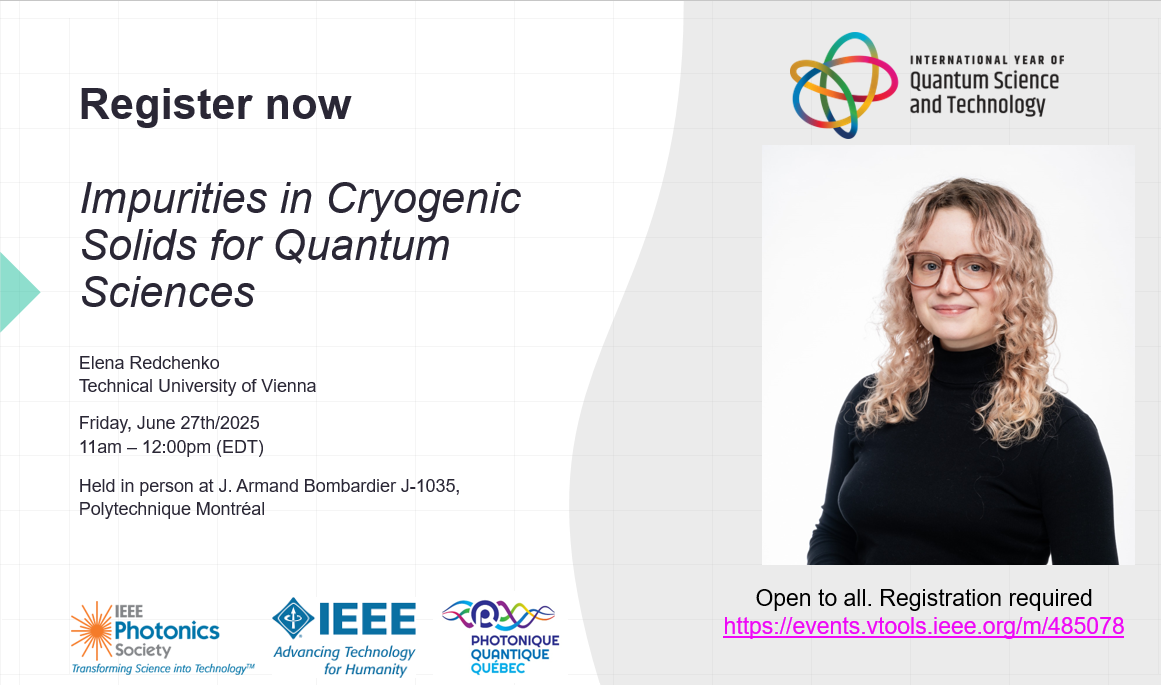Impurities in Cryogenic Solids for Quantum Sciences

Abstract: Hybrid quantum systems offer a promising platform to study quantum phenomena that benefit from the individual strengths of their components. A new emerging hybrid quantum platform composed of spin-doped solid noble gas crystals and superconducting resonators. The noble gas crystals offer a soft, inert, predominantly spin-0 host matrix for the atomic impurities, while the alkali atoms have addressable hyperfine transitions in the GHz regime. In my talk, I will present this novel platform and demonstrate how to reach the strong coupling regime between the impurity ensemble and the superconducting resonator at mK temperatures for efficient coherent information exchange. I will also show coherence time measurements proving its suitability for quantum applications. At the end of my talk, I will discuss how this unique architecture can be used for exploring fundamental quantum effects and new technologies.
Date and Time
Location
Hosts
Registration
-
 Add Event to Calendar
Add Event to Calendar
- Contact Event Hosts
-
Contact: nicolas.quesada@polymtl.ca
- Co-sponsored by Prof. Nicolas Quesada
Speakers
Elena of Technical University of Vienna
Topic:
Impurities in Cryogenic Solids for Quantum Sciences

Abstract: Hybrid quantum systems offer a promising platform to study quantum phenomena that benefit from the individual strengths of their components. A new emerging hybrid quantum platform composed of spin-doped solid noble gas crystals and superconducting resonators. The noble gas crystals offer a soft, inert, predominantly spin-0 host matrix for the atomic impurities, while the alkali atoms have addressable hyperfine transitions in the GHz regime. In my talk, I will present this novel platform and demonstrate how to reach the strong coupling regime between the impurity ensemble and the superconducting resonator at mK temperatures for efficient coherent information exchange. I will also show coherence time measurements proving its suitability for quantum applications. At the end of my talk, I will discuss how this unique architecture can be used for exploring fundamental quantum effects and new technologies.
Biography:
Bio: Elena is a leading postdoc of the hybrid quantum systems team in the group of Prof. Joerg Schmiedmayer at the Technical University of Vienna. She obtained her PhD from the Institute of Science and Technology Austria, where she studied the collective behaviour of superconducting qubit ensembles in the group of Prof. Johannes Fink.

